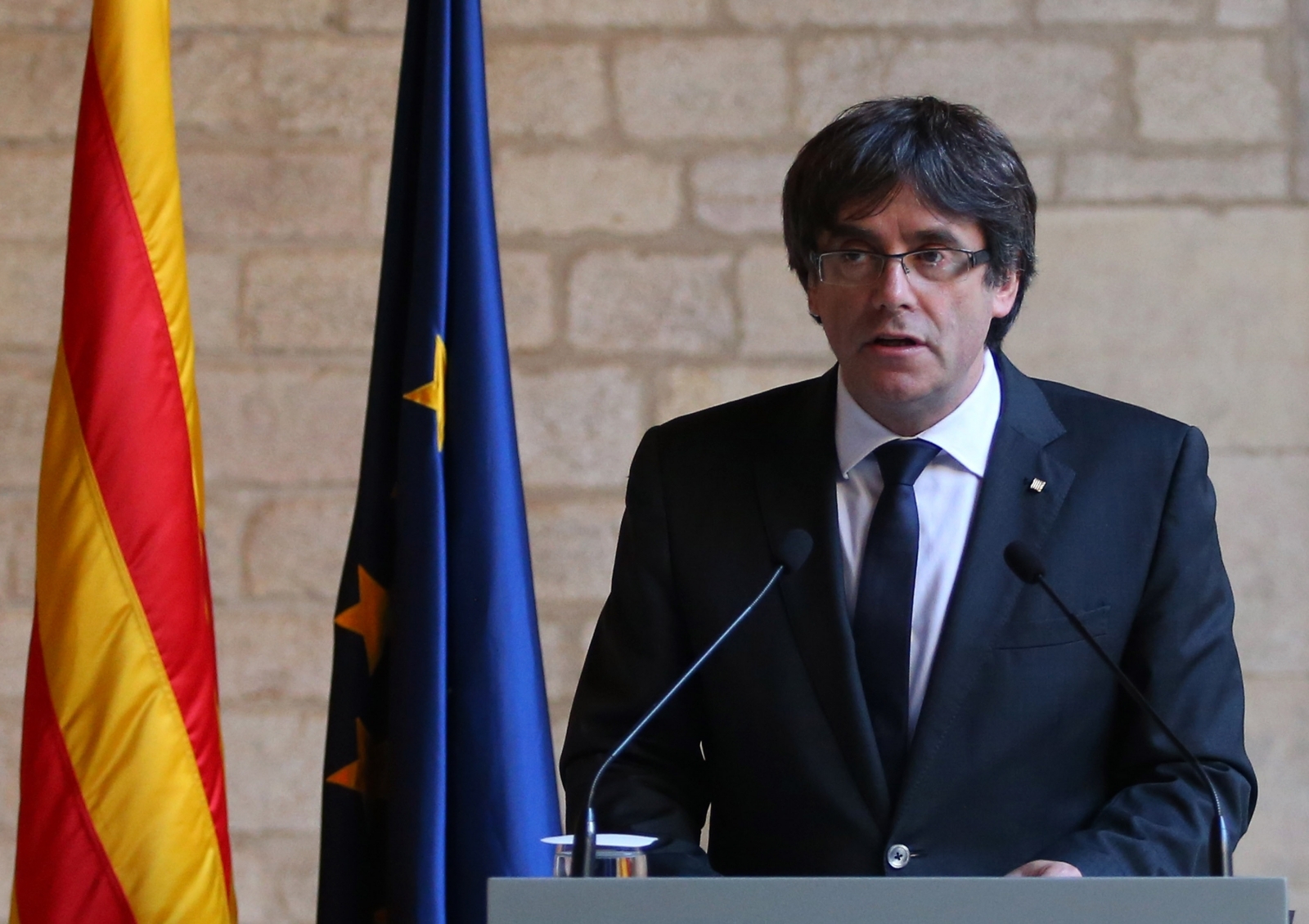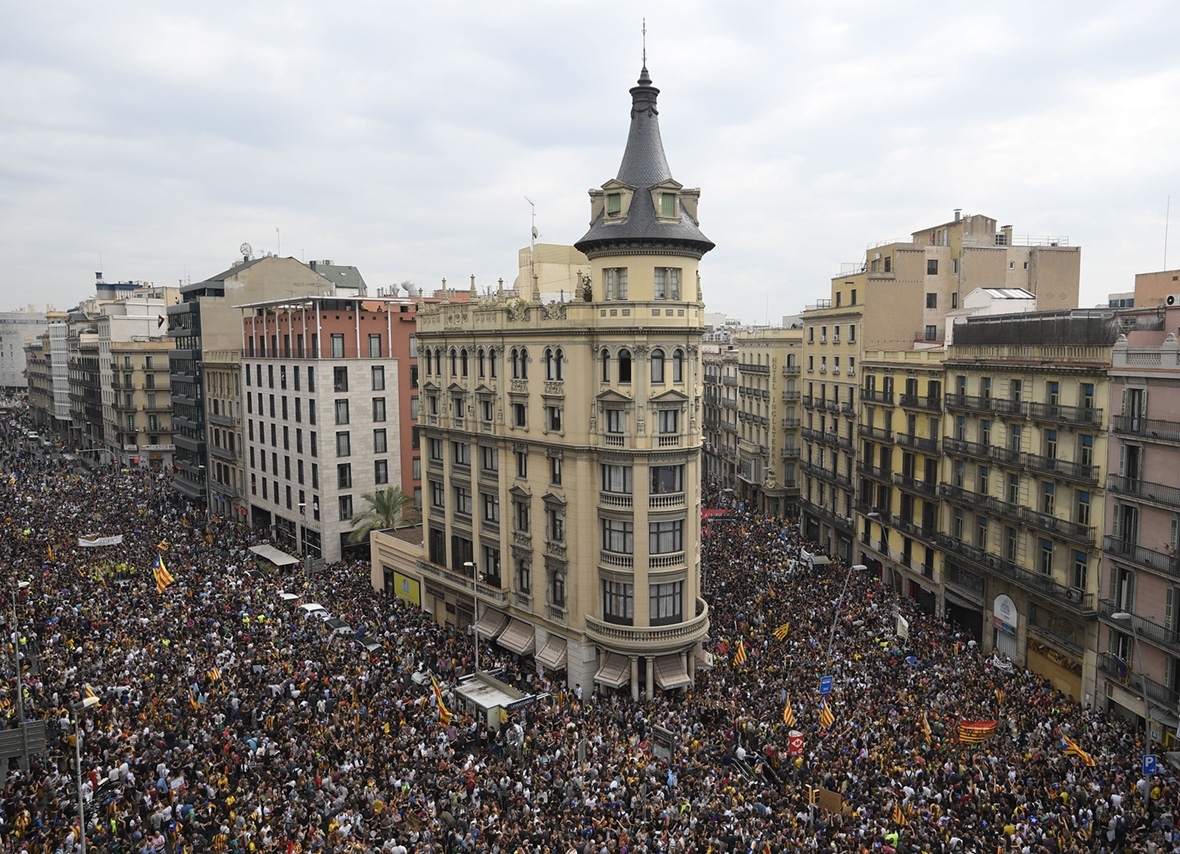Spanish senate to vote on 'nuclear option' Article 155 to strip Catalonia of autonomous powers
Senate likely to back prime minister's plan to trigger article 155 as crisis over independence continues.
Spain's senate is due to vote on a plan by the government to remove Catalonia's autonomous powers in the wake of a constitutional crisis sparked by the region's independence referendum.
The senate is expected to vote in favour of Prime Minister Mariano Rajoy's plan to trigger Article 155 of the Constitution which will strip the region of its powers, a move often referred to as 'the nuclear option'. An absolute majority of the Senate must approve the motion.
Article 155 of the Spanish Constitution
1. If an Autonomous Community does not fulfil the obligations imposed upon it by the Constitution or other laws, or acts in a way seriously prejudicing the general interests of Spain, the Government, after lodging a complaint with the President of the Autonomous Community and failing to receive satisfaction therefore, may, following approval granted by an absolute majority of the Senate, take the measures necessary in order to compel the latter forcibly to meet said obligations, or in order to protect the above-mentioned general interests.
2. With a view to implementing the measures provided in the foregoing clause, the Government may issue instructions to all the authorities of the Autonomous Communities.
2.2 million people in Catalonia went to the polls on 1 October to vote in the referendum. Ahead of the vote, Madrid declared the referendum illegal. A police operation ensued, preventing many from voting and sparking criticism for the police's use of force.
Some 770,000 votes were not cast due to polling stations being closed. 90% of those who cast their ballot voted 'yes' for independence, although the turnout was around 43% and many who did not support independence reportedly did not turn up to vote.
Tensions between the autonomous region and the central government have soared since. Some fear that triggering Article 155 could push Catalan lawmakers to declare independence unilaterally.
Catalonia's president Carles Puigdemont signed a declaration of independence following the referendum, but called for negotiations between regional and central authorities, angering hard-line separatists.
Puigdemont attracted further criticism after he announced on 26 October that he would not call early elections in the region.
The crisis sparked by the referendum led some to call for snap elections in December to ease tensions due to beliefs that Article 155 could not be imposed during an election campaign.
However, Puigdemont said: "I considered the possibility of calling elections. My responsibility is to use all of the avenues possible to find a solution using dialogue in a political conflict but there are no guarantees [from the Spanish government] to justify that".
The leader appealed to the national senate not to trigger Article 155 and claimed that Madrid is trying to solve the crisis by "trying to create an even more extraordinary serious situation by taking away the political autonomy of Catalonia," AP reported.








